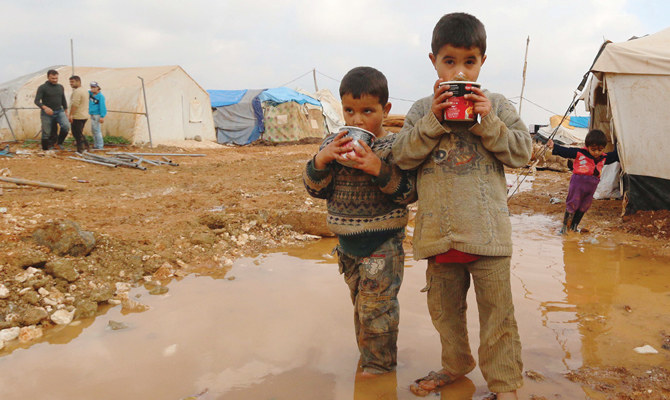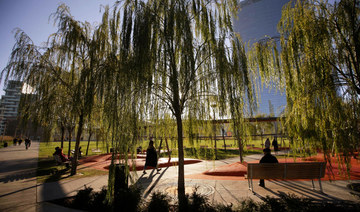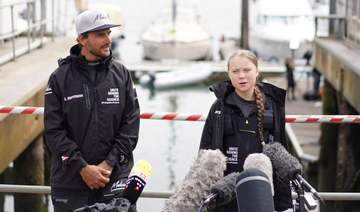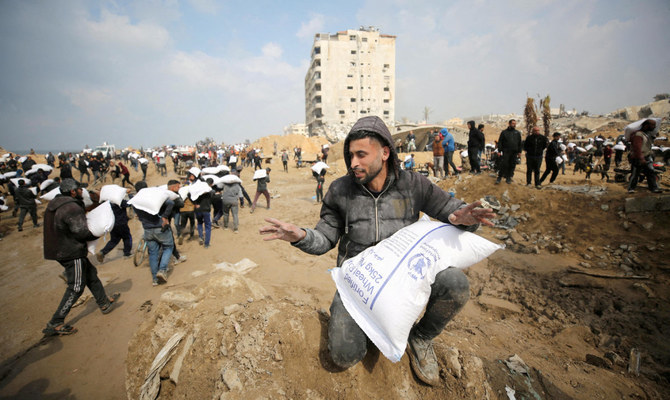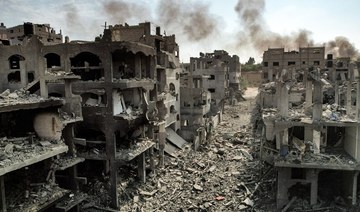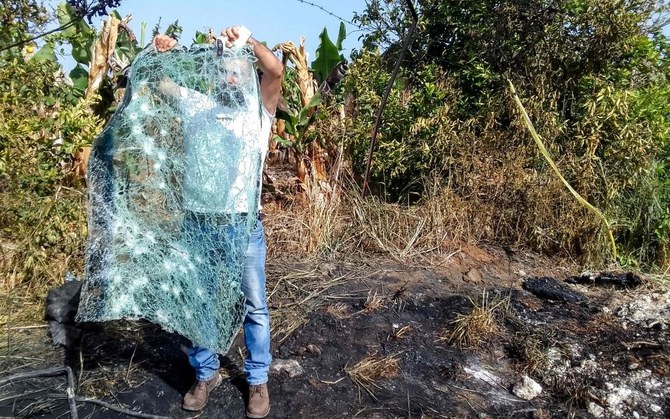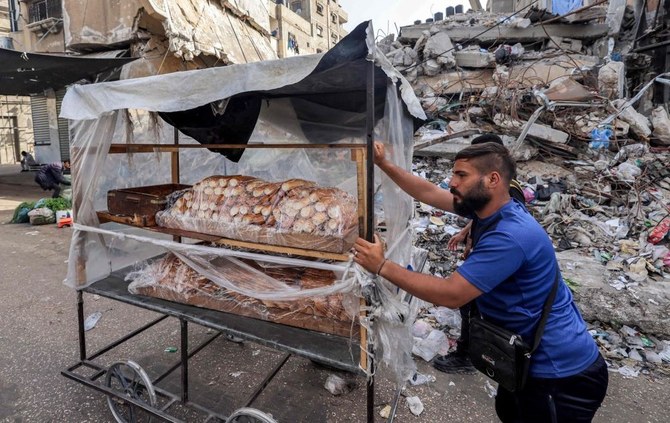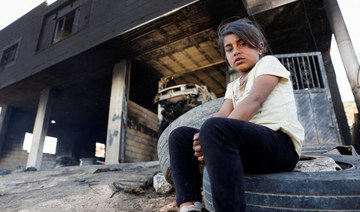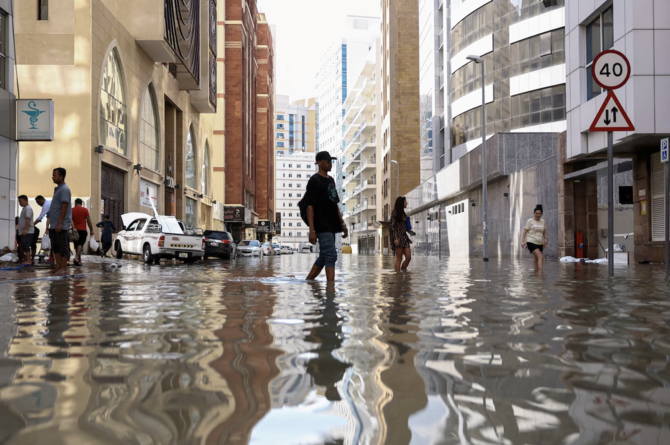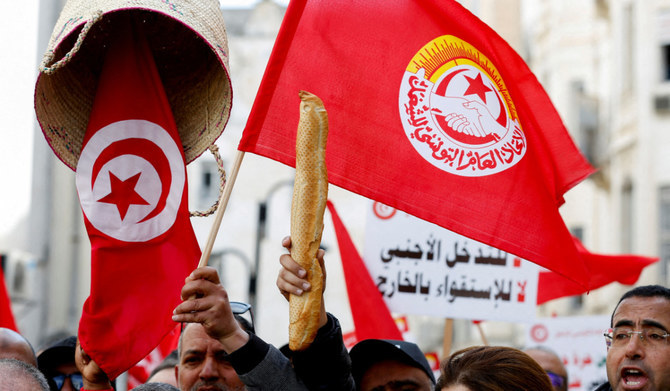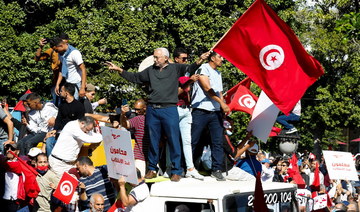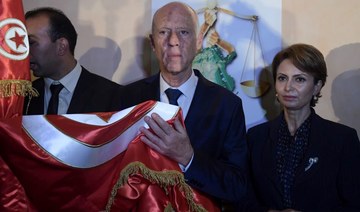DUBAI: From poverty and climate change, to food security, social justice, regional integration and sustainable development, the Arab region still lags in vital areas to ensure a sustainable future, according to a new report.
The aim of the 2018 Annual Report for the Arab Region by the United Nations Economic and Social Commission for Western Asia’s (ESCWA) is to measure progress towards the UN’s Sustainable Development Goals (SDGs) and to help the region build entrepreneurial societies.
“The report reveals that there are several intersecting socio-economic and environmental challenges facing the Arab region and that pursuing these requires integrated solutions for the achievement of the SDGs,” said Carol Cherfane, ESCWA’s chief of water resources in sustainable development policies. “ESCWA assists member states to pursue the water-energy-food security nexus under changing climate conditions through a human rights lens that aims at achieving sustainable development.”
This involves pursuing inclusive solutions that consider how climate change affects cities and rural agricultural areas, which depend on water and energy as basic needs and prerequisites for development.
Climate change was one of the issues tackled in the report, as temperatures in the Arab region are expected to continue to rise through the end of the century and maybe beyond. It found that, although the Arab region contributes only about 5 percent of the total global carbon dioxide emissions, it is one of the regions most affected by climate change.
FAST FACTS
- More than 40 million people in the region — or 1 person in 10 — suffer from hunger and malnutrition.
- Saudi Arabia has committed to 20 to 30 percent of its renewable energy targets within the next 20 years.
- Scientific research ranges from just 0.2 to 0.4 percent of the national GDP in Arab countries.
- Nearly 40 percent of the region’s population lives on less than $2.75 a day.
- $2.3 trillion in development finance could be needed by the region to achieve the SDGs by 2030.
In energy, the region was revealed to be the only one in the world where energy intensity has been on the rise, with a significant gap in energy efficiency regulation and actual progress achieved.
“ESCWA’s work in this area has included supporting rural renewable energy projects that can support entrepreneurship and income-generating opportunities in rural areas, which particularly target women,” Cherfane said. “Pilot projects are being launched in Jordan, Lebanon and Tunisia to support this initiative with
the financial support of the Swedish government.”
ESCWA is also working with Arab governments to improve their understanding and ability to access climate finance, which can be directed to alleviating climate change’s impact on vulnerable groups and strengthening the adaptive capacity of urban and rural communities, including coastal areas where a significant share of the Arab population lives.
Findings show, however, that funding for climate change activities in the Arab region has focused on mitigation projects, rather than initiative geared towards adaptation, which are needed to strengthen water and food security in the region.
As such, some of the solutions being pursued include Jordan becoming a leader in treated wastewater reuse, water harvesting schemes throughout the region, alongside efforts that promote climate-smart agriculture, and Morocco’s investment in combined solar power and water desalination in its parched southern Sahel region.
We are a region where droughts and land degradation are driving food insecurity and humanitarian crises, flash floods are damaging homes and informal shelters from Iraq and Lebanon to Yemen and Sudan.
Dr. Rola Dashti, executive secretary, ESCWA
But more needs to be done, as more than 40 million people in the region — or 1 person in 10 — were still found to suffer from hunger and malnutrition, and increasing climate shocks are putting the food security of the region in peril.
“Fossil fuels are an important component of the economy of some Arab states, but we are a diverse region, comprised of oil-producing countries, middle-income countries, states affected by conflict and occupation, and least-developed countries that are all vulnerable to climate change,” said Dr. Rola Dashti, ESCWA’s executive secretary.
“We are a region where droughts and land degradation are driving food insecurity and humanitarian crisis, flash floods are damaging homes and informal shelters from Iraq and Lebanon to Yemen and Sudan, and have taken the lives of people in cities and rural areas alike, and climate impacts on water and agriculture will be most felt by women and vulnerable groups from the Moroccan and Mediterranean coasts to the Mashreq.”
She said the increasing frequency and intensity of extreme climate events was being felt worldwide, and have been particularly severe in southeast Africa, the Caribbean, the Pacific and Western Europe in recent months.
But despite these challenges, Arab states were taking action.
“The region is working to diversify its economy, transition to sustainable energy, improve energy productivity and invest in renewable energy technologies,” Dashti added. “All Arab states have put in place renewable energy targets: Morocco committed to 52 percent by 2030, Egypt 42 percent by 2035 and oil-producing states such as the UAE, Saudi Arabia, Algeria and Qatar are committing to 20 to 30 percent within the next 20 years.”
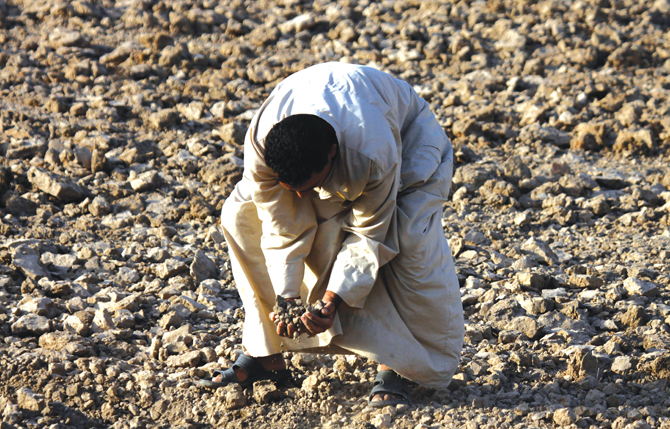
More than 40 million people in the Sahel region — or 1 person in 10 — were found to suffer from hunger and malnutrition, a crisis which is being partially blamed on climate shocks. (AFP)
As the Paris Agreement calls for “a balance between adaptation and mitigation,” Dashti said there was a need in the Arab region for such adaptation and grant finance. “Developing countries are facing impacts today based on the practices of the past. They have developed strategies to overcome climate challenges. Yet, to achieve them, developed countries need to honor their commitments to support nationally determined contributions based on national needs ... to take effective action toward a sustainable future.”
The report found innovation to be weak in the region, as expenditure in scientific research ranges from 0.2 to 0.4 percent of the national gross domestic product in Arab countries.
And poverty is on the rise, although reduced dramatically elsewhere in the world, with nearly 40 percent of the region’s population living on less than $2.75 (SR10) a day. Dashti said solutions will require commitments. “Arab states are already committed. They established the Arab Center for Climate Change Policies at ESCWA and we support (them) to advance climate assessment, policy and action. But frankly, the region needs more support, and we need it at scale.”
This includes bold political commitments that recognize the financial resources needed for developing countries in the Arab region, as the region could require up to $2.3 trillion in development finance to achieve the SDGs by 2030. “We (must) harness and advance regional solutions to accelerate climate action that reflects national priorities and leaves no one behind,” she said.
For Dr. Basem Hashad, an economist at BlueBlox in Riyadh, a trade compliance and consulting company, the report figures were unsurprising, having witnessed the economic and political deterioration of certain Arab countries. “The major areas that need to be worked on in the region are education and scientific research,” he said.
He suggested the next action should end all political and military distortions in the region — in Syria, Yemen, Libya and Arab Gulf waters. “The Gulf states, led by Saudi Arabia and the UAE, bear the major burden and responsibility to lead the region to a more stable and secure atmosphere.”
Muhammad Chbib, an entrepreneur and business leader who founded Sukar.com in the UAE, said Gulf states could contribute by increasing the budget for education across the region to match what is spent on defense.
“They have the financial power to lobby for a unified strategy among regional powers, to push for education and technology leadership and to ensure proper execution,” he said. “Arab expats who return and contribute will be a key to success.”



